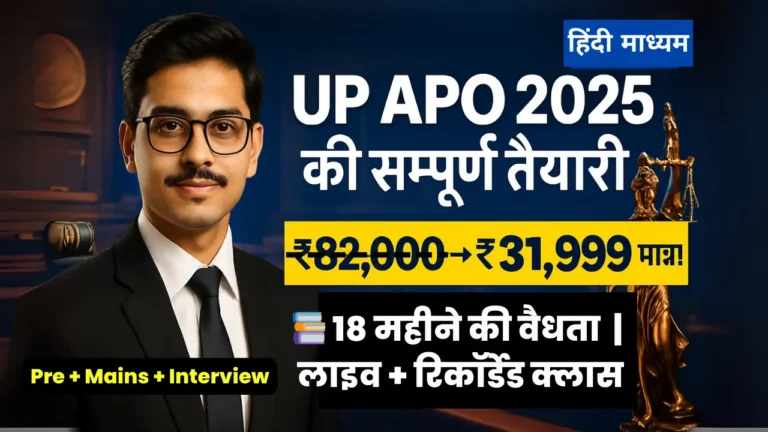Understanding the intricate framework of Muslim personal law is essential for judiciary aspirants. This article delves into the core principles, key provisions, and landmark cases that shape Muslim personal law in India, providing invaluable insights for exam preparation.
Table of Contents
Introduction to Muslim Personal Law in India
Muslim personal law in India governs matters related to marriage, divorce, maintenance, inheritance, and religious endowments for Muslim citizens. Rooted in Sharia (Islamic law), these provisions blend religious doctrines with statutory laws. For judiciary aspirants, mastering Muslim personal law is crucial for understanding India’s diverse legal system and preparing for case-based questions in exams.
The application of Muslim personal law in India is guided by two primary schools of thought:
- Sunni School: Includes sub-schools like Hanafi, Shafi’i, Maliki, and Hanbali.
- Shia School: Includes sub-schools like Ithna Ashari and Ismaili.
Key Principles of Muslim Personal Law
1. Sources of Muslim Personal Law
Muslim personal law derives from various sources:
- Quran: The holy scripture of Islam.
- Sunnah: Traditions and practices of Prophet Muhammad.
- Ijma: Consensus of Islamic scholars.
- Qiyas: Analogical reasoning.
These primary sources are supplemented by secondary sources like customs, judicial precedents, and statutory enactments.
2. Applicability of Muslim Personal Law in India
- Governed by The Muslim Personal Law (Shariat) Application Act, 1937, which ensures that matters like marriage, divorce, inheritance, and waqf (religious endowments) are regulated by Islamic law.
- Not applicable in criminal matters, which are governed by Indian statutory laws.
- Codified laws, such as the Dissolution of Muslim Marriages Act, 1939, address specific personal law issues.
Key Provisions of Muslim Personal Law
1. Marriage (Nikah)
Marriage in Islam is a civil contract, and its essentials include:
- Offer (Ijab) and Acceptance (Qubool): Must be in the presence of witnesses.
- Mehar (Dower): A mandatory payment by the husband to the wife.
- Free Consent: Essential for the validity of the marriage.
- Prohibited Relationships: Marriages within prohibited degrees of relationships are invalid.
Types of Marriage:
- Sahih (Valid Marriage): Meets all legal requirements.
- Fasid (Irregular Marriage): Lacks certain conditions, e.g., absence of witnesses.
- Batil (Void Marriage): Involves prohibited relationships.
2. Divorce (Talaq)
Divorce under Muslim law can be initiated by either party:
- Talaq by Husband: Includes Talaq-e-Sunnat (revocable) and Talaq-e-Biddat (instant, now unconstitutional).
- Talaq by Wife: Through contractual agreements (Talaq-e-Tafweez) or judicial intervention.
- Mutual Divorce: Known as Mubarat.
- Judicial Divorce: Governed by the Dissolution of Muslim Marriages Act, 1939, allowing women to seek divorce on specified grounds.
Landmark Case: Shayara Bano v. Union of India (2017)
The Supreme Court declared Talaq-e-Biddat unconstitutional, ensuring gender justice and equality.
3. Maintenance (Nafaqa)
- A husband is obligated to maintain his wife during the subsistence of the marriage and for a limited period post-divorce (Iddat).
- Maintenance for Divorced Women: The Shah Bano case (1985) expanded the scope of maintenance under Section 125 of the CrPC, leading to the enactment of the Muslim Women (Protection of Rights on Divorce) Act, 1986.
Landmark Case: Danial Latifi v. Union of India (2001)
The Court upheld the validity of the 1986 Act, ensuring reasonable and fair provision for divorced Muslim women.
4. Inheritance
Inheritance under Muslim law is governed by the Quranic principles of Wasiyat (Will) and Faraid (Inheritance Shares).
- Sons, daughters, parents, and spouses are primary heirs.
- The doctrine of representation is not recognized; shares are strictly determined by Quranic injunctions.
- A Muslim can bequeath only one-third of their property through a will; the rest is distributed among heirs.
Case Reference: Amanullah v. Abdul Qasim (1912)
Clarified the principles of inheritance under Sunni law.
5. Waqf (Religious Endowments)
A waqf is a permanent dedication of property for religious or charitable purposes.
- Governed by the Waqf Act, 1995, which established waqf boards for management.
- Irrevocable once created.
Judicial Activism and Muslim Personal Law
1. Role of Courts in Reforming Personal Laws
Indian courts have played a significant role in interpreting and reforming Muslim personal laws to align with constitutional principles.
- Gender Equality: Decisions like the Shayara Bano case highlight judicial efforts to eliminate gender discrimination.
- Right to Maintenance: Shah Bano and Danial Latifi cases expanded women’s rights under personal laws.
2. Balancing Tradition and Modernity
While respecting religious autonomy, courts have ensured that personal laws do not violate fundamental rights under Articles 14 (Equality), 15 (Non-discrimination), and 21 (Right to Life).
Importance for Judiciary Aspirants
Understanding Muslim personal law is critical for judiciary aspirants because:
- Relevance in Exams: Frequently asked in judiciary exams due to its intricate provisions.
- Case Law Analysis: Familiarity with landmark cases like Shah Bano and Shayara Bano enhances analytical skills.
- Understanding Diversity: Helps in appreciating India’s pluralistic legal system.
FAQs on Muslim Personal Law
Q1. What is the significance of Muslim Personal Law in India?
Muslim personal law governs aspects like marriage, divorce, and inheritance for Muslims, reflecting the community’s religious and cultural values.
Q2. What are the key features of a valid Muslim marriage?
A valid Muslim marriage requires an offer and acceptance, witnesses, free consent, and payment of Mehar.
Q3. What is the significance of the Shayara Bano case?
The Shayara Bano case declared Talaq-e-Biddat unconstitutional, ensuring gender justice and equality in divorce matters.
Q4. How is inheritance divided under Muslim law?
Inheritance is based on Quranic injunctions, with specific shares allocated to primary heirs. A will can cover only one-third of the estate.
Q5. What is the role of the Waqf Act, 1995?
The Waqf Act, 1995, governs the creation and management of waqfs, ensuring their proper utilization for charitable or religious purposes.
Q6. What are the grounds for judicial divorce under Muslim law?
Grounds include cruelty, desertion, non-maintenance, or the husband’s impotence, as specified in the Dissolution of Muslim Marriages Act, 1939.
Conclusion
Muslim personal law, with its rich historical and cultural significance, remains a critical component of India’s legal framework. By understanding its principles, provisions, and landmark cases, judiciary aspirants can develop a nuanced perspective on personal laws. With constitutional values guiding interpretations, Muslim personal law exemplifies the dynamic interplay between tradition and modernity in India’s pluralistic society.
MuslimPersonalLaw, #JudiciaryPreparation, #ShariaLawIndia, #PersonalLaws, #LandmarkJudgments, #JudiciaryAspirants, #LawStudentsIndia, #LegalEducation, #IndianJudiciary, #GenderEqualityLaw







